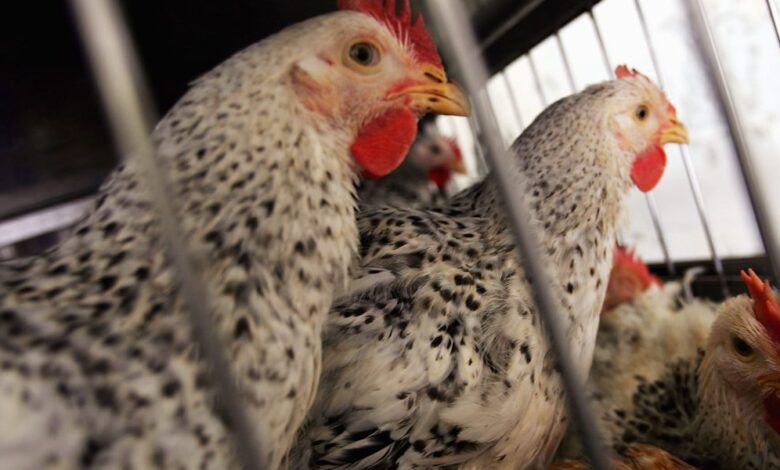How did a Missouri resident get bird flu without contact with animals? Officials say it’s a rare ‘unique case’


Health officials said Thursday they don’t know how a Missouri man contracted the disease. avian flu but believe this may be a rare case of a “one-off” independent disease.
Investigators trying to determine how the person contracted the virus have yet to identify the exact strain of flu.
Centers for Disease Control and Prevention officials say the risk to the general public remains low. Missouri case raised questions about the possibility of human-to-human transmission of bird flu, but officials said there was no evidence that other people were also infected.
“Right now, the evidence suggests this is an isolated case,” said Dr. Nirav Shah, principal deputy director of the CDC.
Unusual strains of flu that originate in animals are occasionally found in people. This year alone, health officials have identified seven cases of swine flu in humans in the United States, officials said. But this is the first time surveillance has detected a bird flu like this.
Avian influenza H5N1 has spread widely among wild birds, poultry, cattle, and a growing number of other animals. Its increasing presence in the environment increases the likelihood that humans will be exposed and potentially contract it, Shah said.
For patient confidentiality reasons, health officials have released few details about the Missouri case, which was first announced late last week.
The person had chest pain, nausea, vomiting, diarrhea and weakness and was admitted to hospital on August 22 “for reasons related to their underlying medical condition,” Shah said.
The patient was tested for influenza as part of his treatment and tested positive for influenza A, a broad virus. Further testing — completed last week — found that the virus was a type commonly found in birds, not humans. However, the patient had very low levels of the virus’s genetic material, leaving officials unable to fully analyze it and confirm exactly what type of virus it was, Shah said.
“Ultimately, it may not be technically feasible to do a full chain,” Shah said.
The patient had no known exposure to dairy cow or other animals linked to the ongoing avian influenza outbreak. The person later told Missouri health officials that they did not drink unpasteurized milk or dairy products, Shah said on a call with reporters on Thursday.
Health officials said the patient was given antiviral medication and has now recovered and been sent home.
As part of the investigation, officials hope to take blood samples from people around the patient to see if they have evidence of infection, Shah said.
The Missouri patient is the 14th person in the United States to contract bird flu since March, when the virus was detected in cows. Another person was infected in 2022. All of those cases were relatively mild illnesses, and each patient had direct contact with infected animals.
US health officials have prepared for vaccines and other measuresin case avian influenza begins to spread widely in the community or begins to cause severe illness.
On Thursday, the CDC announced that it is partnering with five commercial lab companies to develop and conduct tests for H5N1 or other viruses. The agency will initially spend at least $5 million on the agreements and plans to expand to $118 million over the next five years if needed, Shah said.
In the past, CDC has developed its own tests in the early stages of new outbreaks, with widespread testing not available until later. That slows the detection of emerging infections.
___
The Associated Press Health and Science Department receives support from the Howard Hughes Medical Institute’s Science and Education Media Group. The AP is solely responsible for all content.
Broadsheet: Covers trends and issues impacting women in and out of the workplace, as well as the women who are changing the future of business.
Register here.




